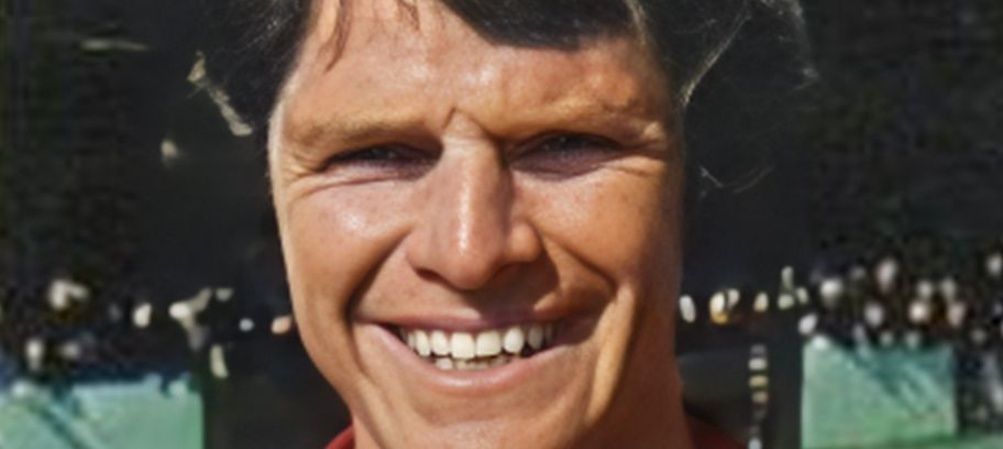Peter Allen was a midfielder who not only made Leyton Orient tick for more than a decade, but he also etched his name forever in club folklore by becoming their record appearance holder.
PART ONE
Born on 1 November 1946, in the shadow of London’s footballing heartbeat, Allen didn’t walk the most obvious path into Orient history. He started out at Tottenham Hotspur, a club with an embarrassment of riches in midfield, and for a young lad trying to break through at White Hart Lane in the 1960s, the road was always going to be a tough one. However, fate has a curious way of nudging players toward the places they’re meant to be, and in March 1965, at the age of just 17, Allen left Spurs for Leyton Orient.
It was a quiet transfer by the standards of the day, but one that would define not just his own life, but Orient’s identity for the next 13 years. His first taste of O’s life came not in front of a roaring league crowd but in the Football Combination, a 2-2 draw against Southend Reserves. It might not have been glamorous, but it was the start of something special.
Only six months later, Allen was thrown into the fire of first-team action, making his debut in a League Cup tie at Brisbane Road. It ended in a sobering 3-0 defeat to Coventry City, but three days later, he was blooded in the Football League proper away at Portsmouth, where Orient were beaten 4-1. For many young players, such a baptism of fire could have been damaging, but Allen’s response was typical of the man – dust yourself off, get back into the fray, and prove your worth.
Indeed, that toughness, both physical and mental, became the hallmark of his game. Allen wasn’t the most elegant midfielder in the country, but what he lacked in finesse he more than made up for with grit, drive, and a refusal to take a backward step. Before long, he was a fixture in the Orient midfield, his reputation built on no-nonsense tackling, boundless energy, and a commitment to the team above all else.
Moreover, Allen’s rise coincided with one of the most significant chapters in Orient’s history. The late 1960s and early 1970s were a period of ambition at Brisbane Road, and Allen was right at the heart of it. In the 1969–70 season, he was ever-present, playing all 46 league matches as Orient stormed to the Division Three title. That consistency wasn’t just remarkable – it was vital. In a division where attrition often outweighed artistry, having a midfield warrior who never shirked a game was worth its weight in gold.
Thus, Allen’s legend began to grow. Supporters warmed to him not because he was flashy but because he was dependable, the kind of player who would throw himself into a 50-50 as if his career depended on it. In many ways, he was the archetypal lower-league hero – and yet, under the surface, he was also more refined than some gave him credit for, capable of keeping the ball moving and providing a platform for Orient’s attacking talents.
PART TWO
By the 1973–74 campaign, his influence was such that he was entrusted with the captain’s armband. That season, the O’s came agonisingly close to the promised land, missing out on promotion to the First Division by a single point. It was heartbreak, but also proof that Orient could dream big, and Allen was central to that belief. His leadership, his steadiness, and his sheer bloody-mindedness made him the heartbeat of the side.
Yet football has a way of offering both ecstasy and disappointment, and nowhere was that clearer than in 1977–78. That season, Orient embarked on a historic FA Cup run that remains the stuff of legend in East London. For the only time in the club’s history, they reached the semi-final of the famous old competition. Allen’s role was more limited than he might have wished, but when he was called upon, he delivered one of the greatest nights in Orient’s story.
On 27 February 1978, at Stamford Bridge, Orient faced Chelsea in a fifth-round tie. Few gave them a chance, but against the odds, they triumphed 2-1 in front of a disbelieving crowd. Allen played that night, a moment that fans would remember forever, and though his Cup involvement ended there, the fact that he had been part of such an iconic win was a fitting reminder of his enduring value.
After that famous victory, his appearances became fewer, but his service was already assured. His final outing for Orient came in a goalless draw against Notts County, and not long after, he departed Brisbane Road to join Millwall, linking up with former Orient manager George Petchey. He played 18 times for the Lions before hanging up his boots, bringing to an end a career built on loyalty, graft, and quiet excellence.
In total, Peter Allen made 490 first-team appearances for Leyton Orient – more than any other player in the club’s long history. That record, achieved across 13 years of blood, sweat, and toil, is a badge of honour not just for Allen but for the entire Orient faithful. Records in football are made to be broken, we are told, but some feel unassailable, and Allen’s mark may stand for as long as there is football in East London.
Equally remarkable is the way he transitioned after football. While some ex-pros drift into coaching or punditry, Allen took a different path, retraining as a solicitor and building a career away from the roar of the terraces. It was a reminder that beneath the hard tackles and uncompromising midfield play, there was a man with the intelligence and determination to succeed in more than one field.
